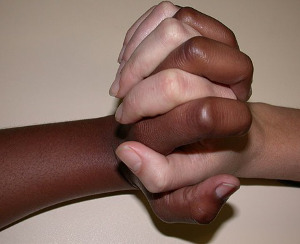
The “conventional wisdom.”
Inspired by the recent news out of Fresno, California where the minority community is upset that a new school hired a white teacher to teach courses on “cultural studies,” I ask the question: Do students (particularly minorities) require instructors of like hue to succeed in the classroom?
In American public schools today, aside from the “achievement gap,” there’s a another type of gap: that between the number of minority students and minority teachers. The number of the former is growing more rapidly than the latter.
The conventional wisdom answer says “yes” to the question. But some recent research says “not so fast.”
According to Walter Hunt, a recent graduate from University of Houston’s Executive Education Doctorate in Professional Leadership program and author of the study, they are not.
Hunt’s research — which examined eighth-graders and teacher diversity in 198 Title I Texas schools — revealed that the achievement gap between African-American and Caucasian students was greater on campuses with a larger percentage of African-American teachers.
“At first glance, it would appear that teacher race doesn’t matter when addressing student achievement of minority students, but there are many layers involved when analyzing achievement of a middle-school student, such as racial identity, self-identity, age, involvement in school activities,” Hunt said in a University of Houston release. “In this particular study, I was surprised to see that the campuses with more African-American teachers did not have the highest African-American student achievement. This just goes to show that having a positive impact on students is a complex, multi-layered process,” he added.
Precisely. It’s probably as complex and multi-layered a process as, say, teacher evaluations, but contemporary conventional wisdom lays much of the assessment of teacher competence on periodic achievement test scores.
To be sure, I get the conventional wisdom of the usual response to the question. It makes sense that someone with a similar background (mainly race) can relate better to students. But as noted, this relationship doesn’t necessarily equate to better academic results … because race is but one factor in any teacher-student connection. There’s also family relationships, past/present socio-economic status, education background … and so on.
Relying only on race invariably leads to the (misguided) notion that people of a particular color are all alike. Do we really want that?
Consider, too: how many Asian teachers are employed in our schools today. With such a paucity (nationally, Asian teachers hover around two percent of the total), the conventional wisdom would dictate that Asian students’ academic achievement be pretty dismal. But, as we all know, it’s actually the best of any demographic.
So, here’s some conventional wisdom for you … some that’s cuts right through the politically correct educationist conventional wisdom: Good teachers of any race will prepare kids academically … and they’ll also be able to relate to them.
How’s that?
Dave Huber is an assistant editor of The College Fix. He has been involved in education for twenty-five years. You can follow him on Twitter @ColossusRhodey.
Like The College Fix on Facebook / Follow us on Twitter







Please join the conversation about our stories on Facebook, Twitter, Instagram, Reddit, MeWe, Rumble, Gab, Minds and Gettr.